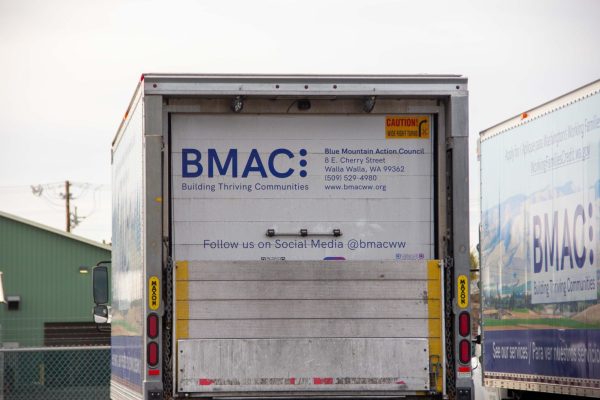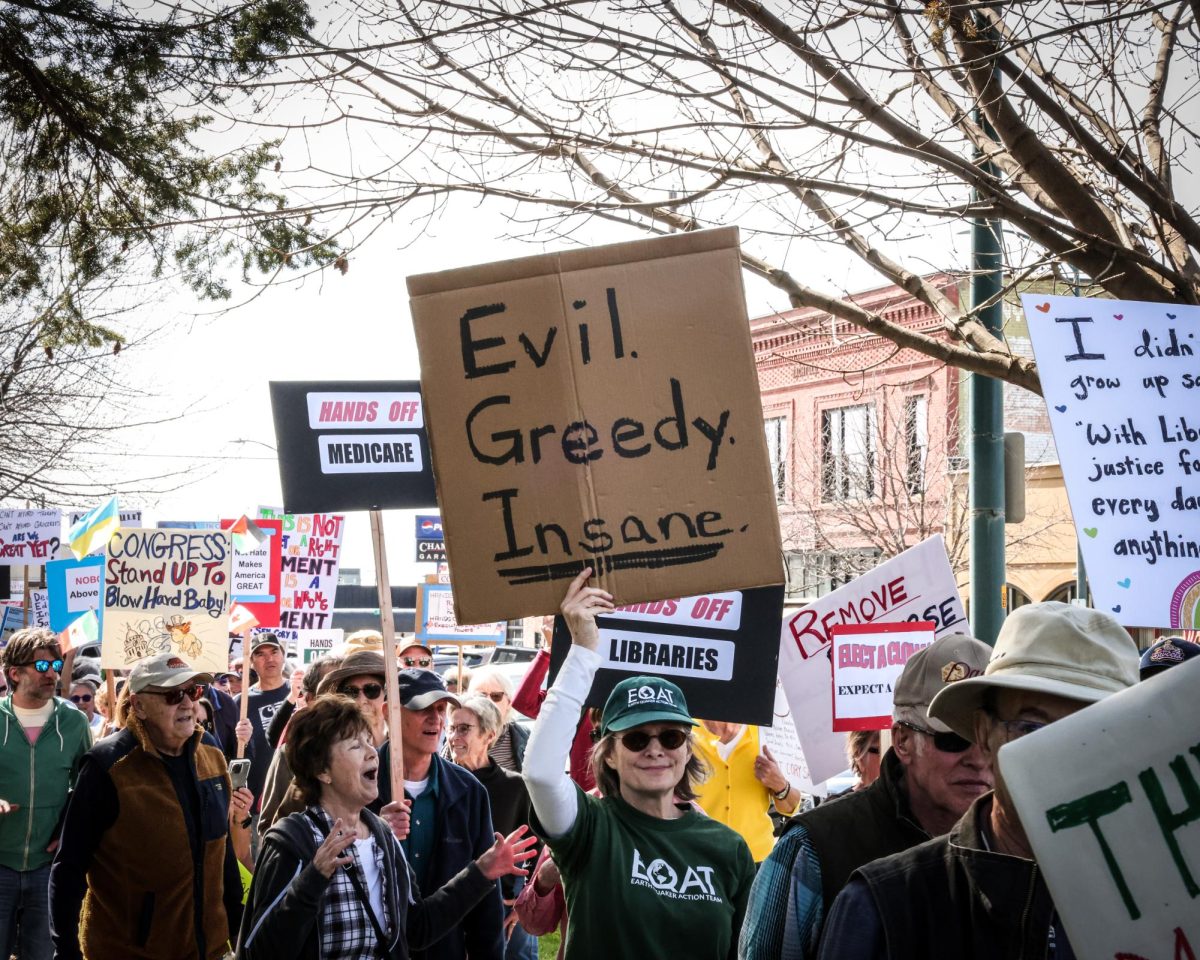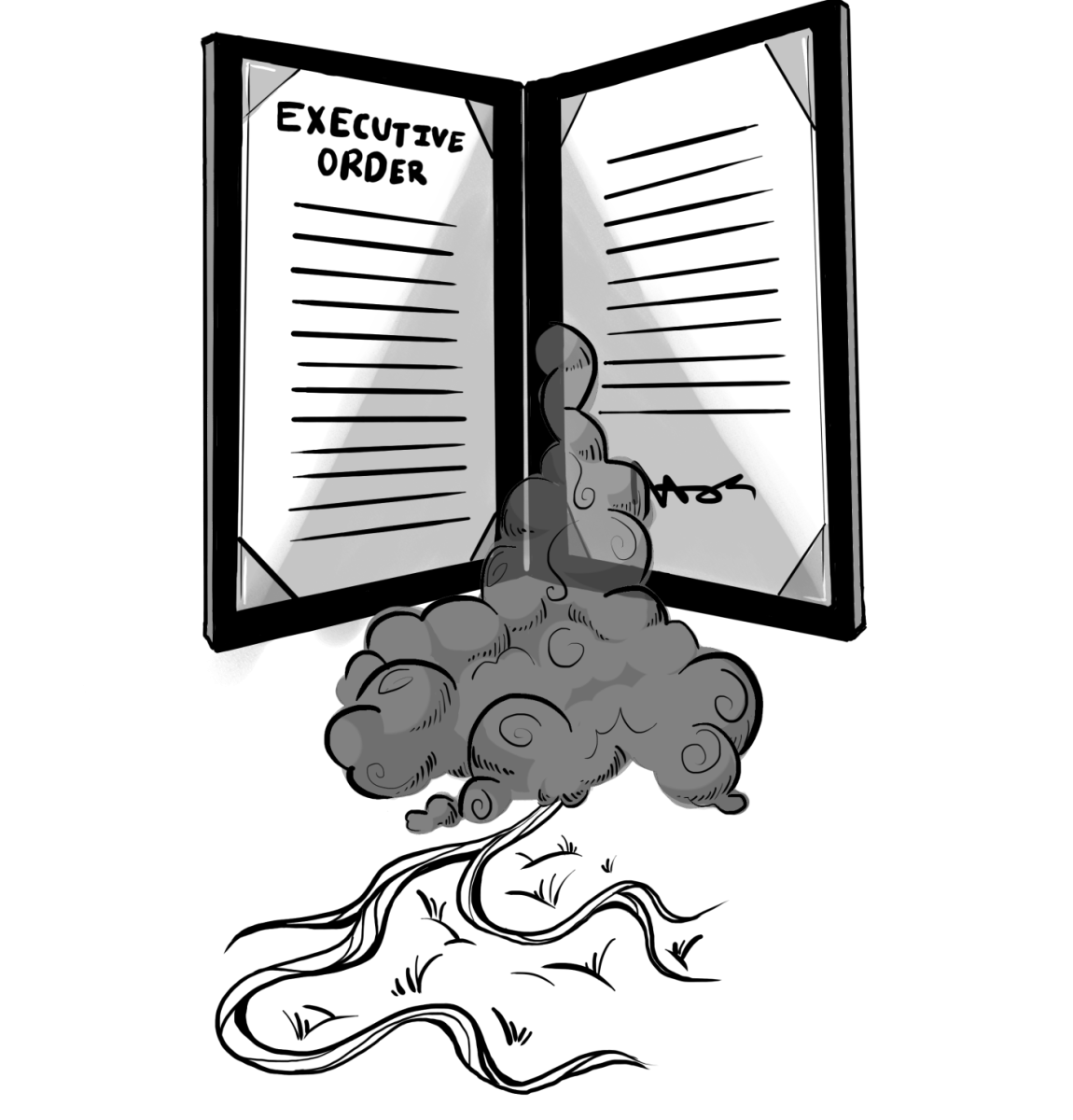
The Blue Mountain Action Council Food Bank (BMAC) is terminating its mobile food distribution service. Citing cuts to federal and state funding, the Blue Mountain Action Council (BMAC) Food Bank announced the termination of this service after April 24 in an April 4 newsletter. The discontinuation is one of many examples of increasing constraints faced by food banks across the United States as federal funding for major government assistance programs is slashed across the board.
In particular, food banks are reeling from a March 2025 cut of the United States Department of Agriculture’s (USDA) Emergency Food Assistance Program (TEFAP). Through its Commodity Credit Corporation (CCC) division, TEFAP was intended to aid food banks with $500 million in funding.
Danielle Garbe Reser, the CEO of BMAC and Whitman class of 1997 alum, explained the impact that the USDA slash has had on the food bank.
“… [W]e knew it [the CCC] was under review, and then they announced suddenly that it was canceled. [There was a] huge amount of food that we were expecting to receive to be able to distribute that we do not have [now],” Garbe Reser said.
While BMAC remains committed to supporting partner pantries in other Washington state counties and working with other local food banks like the Salvation Army and St. Frances Cabrini, the cuts nevertheless pose a significant threat to the food bank, which plays a vital role in providing access to welfare services in Walla Walla and the Eastern Washington region.
“We’re the designated federal entity for Walla Walla, Columbia and Garfield County to provide services … that help address the issues of poverty. In our area, our core services are in food, housing and jobs. We do many other things as well, and we’ve been doing it for nearly 60 years,” Garbe Reser said. “We have all the warehousing, storage, vehicle distribution [and] packing capacity for five counties. The food bank … ha[s] thirteen formal pantries throughout the network that we’re getting food [to] from the federal government, from the state government and from other state partners. We’re helping to distribute that food throughout so that people who need access to food can receive it.”
BMAC’s efforts are part of a broader fight against food insecurity, which continues to be a pervasive issue in Walla Walla. According to Feeding America’s Map the Meal Gap database, the area’s food insecurity rate was 12.6 % overall and 16.9% for children as of 2022, as compared with the national food insecurity rate of 13.5% overall and 18.5% rate for children as of 2022. During the COVID-19 pandemic, which lowered incomes and fractured food supply chains, food insecurity spiked, reaching a 20.4 % rate of prevalence in the U.S. in April 2020. Combined, these two factors have necessitated persistent community outreach by the BMAC Food Bank.
“In the last BMAC fiscal year, we distributed about three million pounds of food. It’s a very large capacity, and the capacity has grown since COVID. The number of people we … serve in our network has grown 200% compared to our pre-COVID levels, so there’s been lots of demand and need for food assistance,” Garbe Reser said.
Now, these efforts must be funded with little federal — or state — assistance.
“… [F]ood supplies have been down, both because of general donations, state funding [and] federal funding as well. Looking at the big change in the federal funding [and] knowing that our state … [is] projecting potentially a $40 to 50 million decrease in funding for our food system because [it] is facing a budget deficit, we saw that we were going to be in a more challenging position this spring and that it looks unlikely to get significantly better at either the state or the federal level,” Garbe Reser said.
The TEFAP cuts are even impacting food banks that operate without federal funding. Jen Muzia, the Executive Director of the Ballard Food Bank in Seattle, Washington, commented on this.
“We don’t receive federal funding, but about 50% of the food we have received through the USDA’s TEFAP, products like milk, dried fruit, canned and frozen protein, is being cut,” Muzia said. Unlike with the COVID response, where the government stepped in to help, targeted federal cuts are actively harming our community. I’m also concerned about how state and local budget shortages will impact … our funding,” Muzia said.
Muzia described the bleak current trends among food banks in Seattle.
“Food banks across Seattle are all talking about how our food supply is down and more people are coming through. With inflation, our neighbors are needing to shop at multiple food banks to make ends meet. One of my colleagues at another food bank shared that this is the worst they have seen the food supply in over 20 years. It’s truly unprecedented,” Muzia said.
These economic pressures act on people and businesses in such a way as to create a cycle of adverse impacts on the food system.
“People are also donating less food as their grocery budgets don’t stretch as far. Grocery store partners we work with to recover food that would otherwise go to waste are ordering less, so they’re also donating less to us,” Muzia said.
In light of the challenging circumstances facing food banks across the country, BMAC held a Friends of the BMAC Food Bank Community Meeting on Thursday, April 10, inviting local community members to discuss strategies for generating community support for the food bank.
Erik Mora, the BMAC Food Bank Director, detailed the challenges BMAC expects to face as a result of reduced funding, particularly concerning bulk purchasing.
“Assistance has gone away, so the purchasing power has gone down significantly. We might not be able to get a lot of fresh produce and will have to buy a lot of shelf-stable produce to make up for the produce that isn’t coming,” Mora said.
Mora emphasized the importance of community action at the meeting.
“We can’t fully rely on the state. Now is the time for the community to take [food bank support] up,” said Mora.
One of Whitman’s Community Engagement programs, the Food Justice Project (FJP), is taking up Mora’s call. The FJP works closely with the BMAC Food Bank to facilitate volunteer opportunities for students, and it aims to adapt along with BMAC to the shifting federal funding landscape.
Sophomore and FJP leader Abd Alghani Rahmoun explained what adjustments the FJP has made.
“In light of changes in BMAC’s operations, the FJP has adapted by expanding our collaborations. We’re now partnering with St. Francis Cabrini and working closely with Bon Appétit through the Food Recovery Network, a national organization that supports campus-led food justice efforts. This partnership allows us to host on-campus food distributions, making volunteering more accessible for students and directly supporting peers facing food insecurity,” Alghani Rahmoun said in an email to The Wire.
Garbe Reser highlighted the importance of Whitman students’ involvement with the BMAC Food Bank.
“We rely heavily on volunteers to do th[is] work, and Whitman students have been a big part of volunteering, packing bags and working at distribution and helping support the food bank … for many, many years,” Garbe Reser said.
Ultimately, Garbe Reser is optimistic that the generosity and involvement of the Walla Walla community will guide the BMAC Food Bank through this difficult period.
“What we’re really hoping to do is rally the community … especially in an agricultural community, we don’t want anyone to go hungry here. [We’re focused on] [w]hat can we do better together to make sure that we can provide these resources in our community. [H]opefully, [this happens] with federal and state support, but if that goes down, we’ll be able to work together as a community to make sure that no one goes hungry,” Garbe Reser said.
Reporting was contributed to this article by Gauri Vaidiya.








Patty Sandoval • Apr 24, 2025 at 7:34 am
Something has to give! Having volunteered at Ballard Food Bank for many years and now at mill creek wa c oodles Bank, I can’t help but see the need for food subsidy for those in need, so many to bee sure. Yet, the fat bellies of our country s leaders show they don’t lack in food,and probably filet mignon.
The haves vs the have not!
Nott fair at all.
Hunger causes uncontrolled emotions.